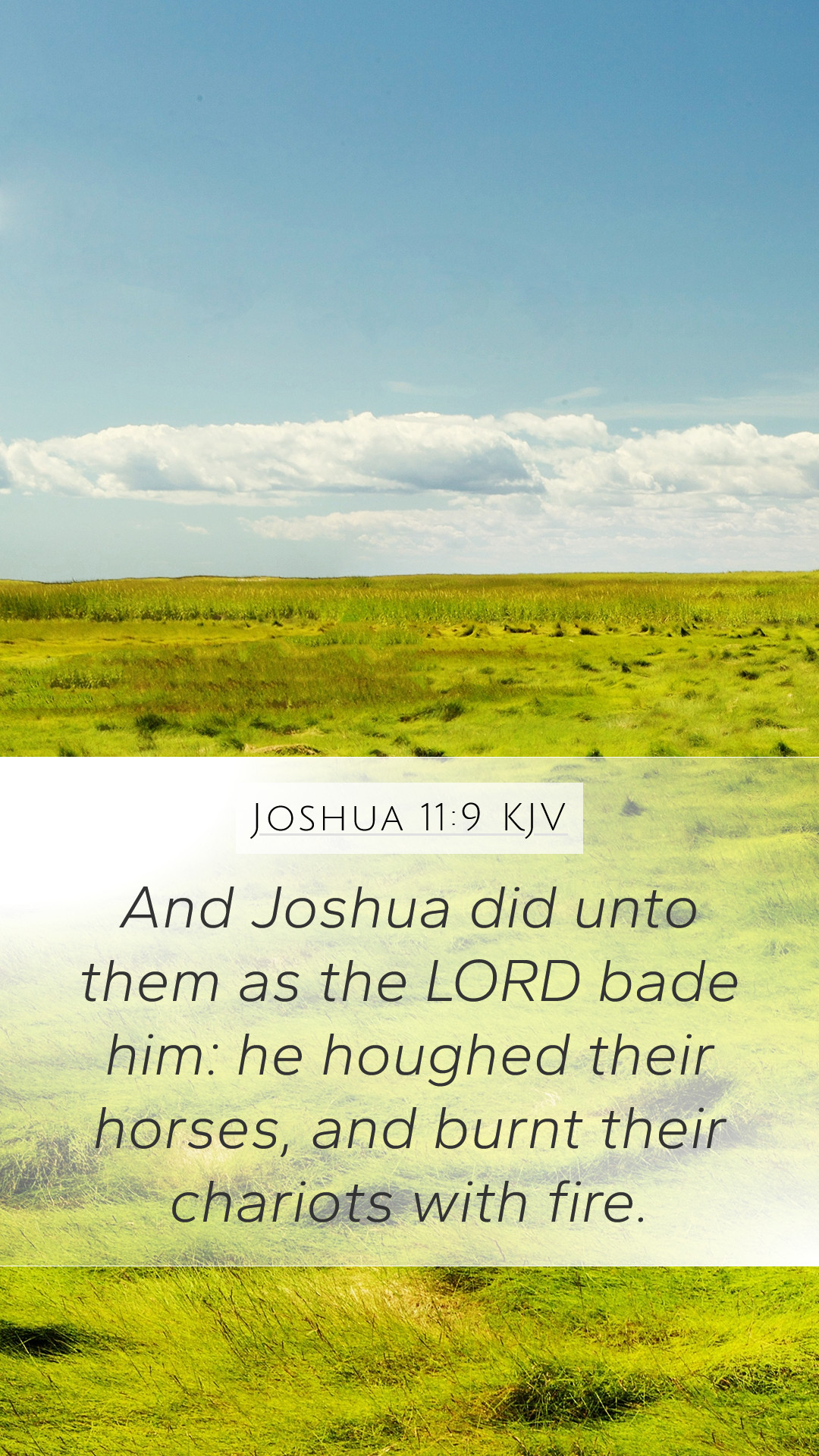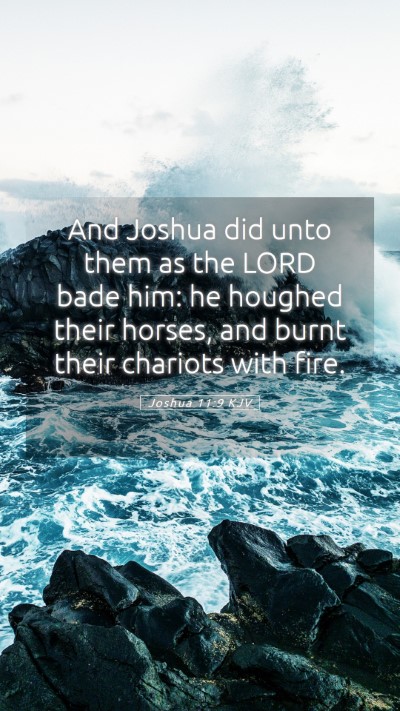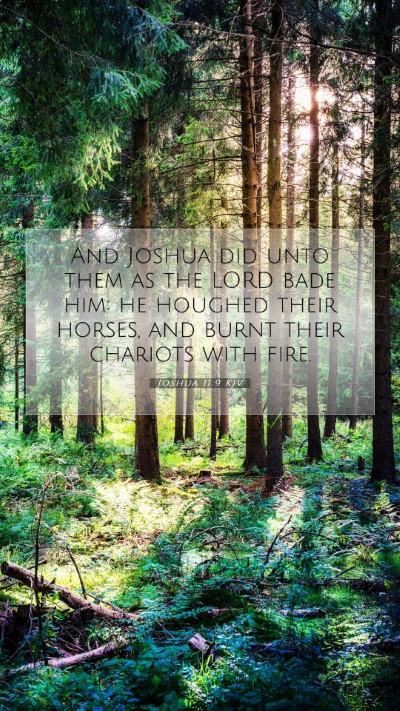Old Testament
Genesis Exodus Leviticus Numbers Deuteronomy Joshua Judges Ruth 1 Samuel 2 Samuel 1 Kings 2 Kings 1 Chronicles 2 Chronicles Ezra Nehemiah Esther Job Psalms Proverbs Ecclesiastes Song of Solomon Isaiah Jeremiah Lamentations Ezekiel Daniel Hosea Joel Amos Obadiah Jonah Micah Nahum Habakkuk Zephaniah Haggai Zechariah MalachiJoshua 11:9 Meaning
What is the meaning of Joshua 11:9?
And Joshua did unto them as the LORD bade him: he houghed their horses, and burnt their chariots with fire.
Joshua 11:9 Bible Verse Meaning
Bible Verse Commentary: Joshua 11:9
Bible Verse: Joshua 11:9 - "And Joshua did unto them as the LORD bade him: he houghed their horses, and burnt their chariots with fire."
Understanding Joshua 11:9
This verse captures a critical moment in the conquest of Canaan under Joshua's leadership. The phrase "did unto them as the LORD bade him" highlights Joshua's obedience to God's commands, which is a central theme throughout the book of Joshua.
Bible Verse Interpretations
Matthew Henry emphasizes that Joshua’s action of "houghed" the horses and burning the chariots signifies the total destruction of the enemy’s military capabilities. In the context of Biblical warfare, this act was not purely physical destruction but a spiritual act demonstrating trust in divine power rather than reliance on human military strength.
Albert Barnes provides further insight into why Joshua would destroy the horses and chariots. He notes that such tactics were a common military strategy to ensure that the enemies could not regroup or continue their resistance. This shows God's supremacy over warfare, affirming that spiritual leadership often calls for radical measures against worldly reliance.
Adam Clarke elaborates on the symbolism behind this act, explaining that in the ancient world, horses and chariots were the embodiment of military might. By disconnecting the Israelites from any human means of warfare, God sought to instill a deep reliance on faith. Clarke suggests that this teaches modern believers the importance of placing their trust firmly in God rather than physical resources.
Bible Study Insights
- Obedience to God: The verse illustrates the importance of obedience to divine instruction, as Joshua follows God's directives without hesitation.
- Symbolism of Destruction: The destruction of horses and chariots symbolizes a break from reliance on human strength and strategies.
- Trusting God: This passage encourages believers to trust in God's plan and provision, even when it seems counterintuitive or extreme.
Biblical Exegesis
When conducting a Biblical exegesis of Joshua 11:9, it is essential to consider the historical context of warfare during the conquest of Canaan. The Israelites faced numerous nations with formidable military resources, and God’s command to destroy these resources was to ensure that the glory of the victory belonged to Him alone, rather than the strength of Israel's army.
Cross References
- 1 Samuel 8:11-12 - Discusses the use of horses and chariots in Israel's future.
- Psalms 20:7 - Speaks about the difference between trusting in chariots and the name of the Lord.
- Isaiah 31:1 - Warns against relying on Egypt's horses and chariots instead of the Lord.
Application of Scripture
In a modern context, Joshua 11:9 invites believers to reflect on their reliance on personal strength, strategies, and resources versus their reliance on God. It challenges us to consider how we might be holding onto things that hinder our complete trust in Him. Just as Israel needed to destroy their chariots and horses, we might need to eliminate distractions or dependencies that pull our hearts away from God.
Conclusion
Understanding Joshua 11:9 invites deeper conversation within Bible study groups about spiritual warfare and reliance on God. This verse serves as a reminder that God’s ways often challenge our conventional wisdom, reminding us to seek Bible study resources that encourage a thorough understanding of God’s commands and their applications in our lives today.


